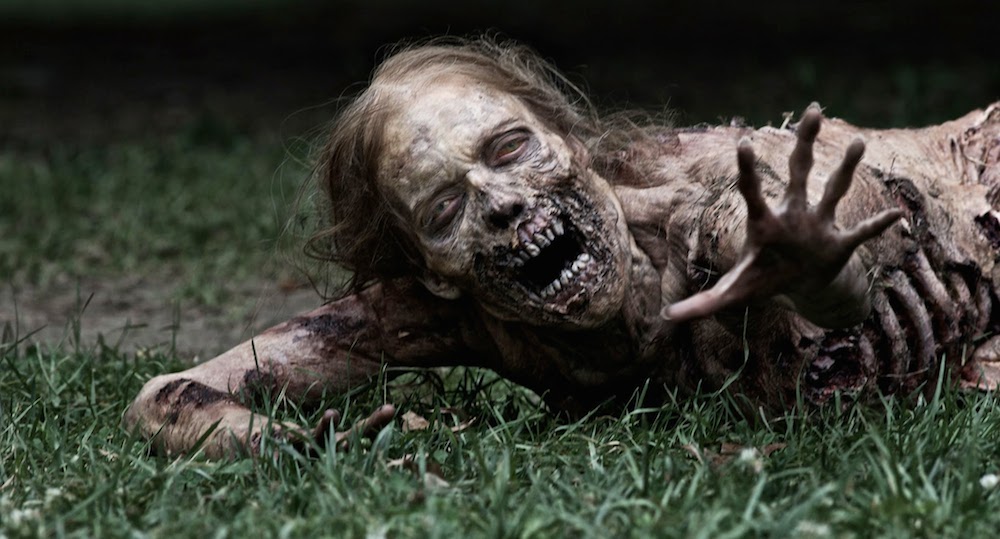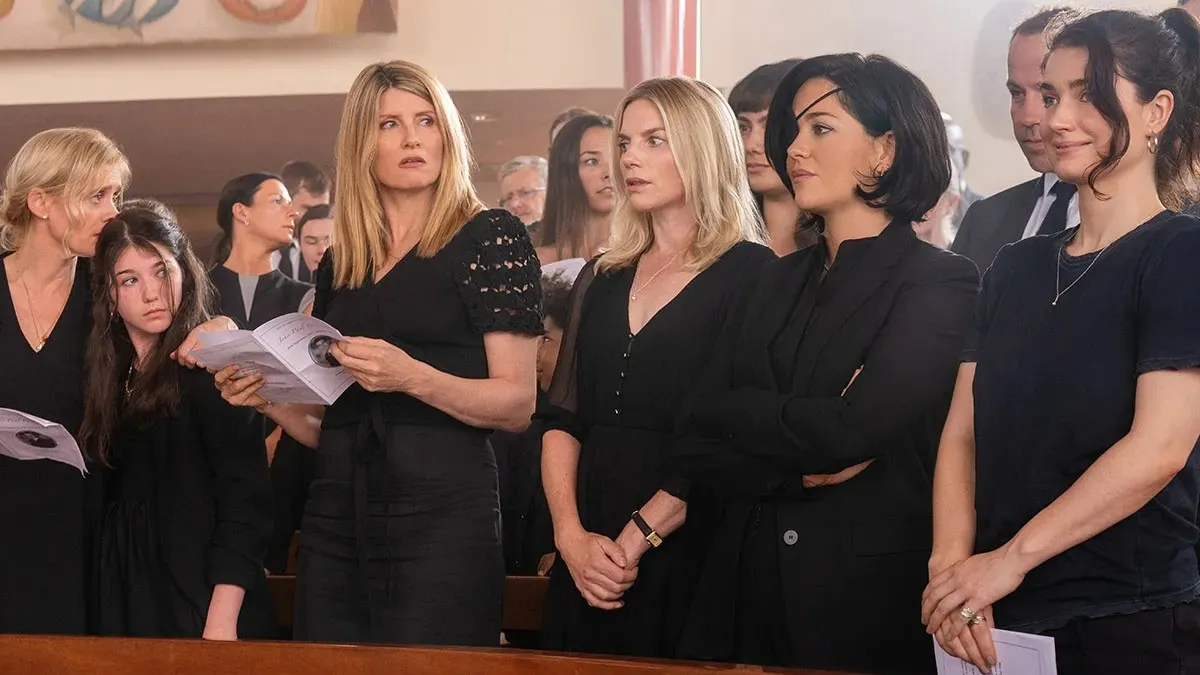Firefly had Reavers, Lost had the Others, Terra Nova had Sixers, V had Visitors, The 100 has Grounders, and Falling Skies has Skitters/Cooties. Slang terms for the enemy probably go back to the time of cave paintings, when early humans painted their enemies with vestigial tails. Television has no shortage of this brand of slang. Particularly, when a show is taking its audience to an unfamiliar world—as in fantasy or science fiction—it’s important to instruct the viewer in the lingo. Perhaps no word is important as the one the creators assign to their monster of choice.
Kids and adults churn out new terms for their enemies by the day, most often to clearly differentiate themselves from the other (think “Libertard,” “Teabagger”). In the world we live in, such language evolves and spreads at the rate of the internet. A lot of genre shows are set in times and places with no digital technology, and often after the complete collapse of civilization. So the study of how a new word travels in one of those settings could be the most pure study of modern etymology we can observe. I’m not talking about a name that was given to something deliberately, like “Cylon,” but names for things that evolve naturally. I know, I know, these worlds aren’t real. And sometimes they screw up in ways that bring our suspended disbelief tumbling to Earth.
Let’s talk about The Walking Dead, since it’s been around a while now, and some of us have watched each episode, well, more times than Lori told Carl to stay in the house. (Spoilers ahead.) I’m talking about the show here, not the comics, since each has become its own beast. In the eponymous example of the trope “Don’t Say the Z Word,” the writers created all new terms for a well-known monster. (Much has been said about how and why Kirkman and Adlard chose to assume the complete absence of fictional zombies in their created universe, so I won’t get into that.)
If you’ll harken back to the pilot, you know that Rick’s ambassador into the Brave New Apocalypse is Morgan. When Rick questions why Morgan shot “that man,” the former retorts, “You need glasses. That was a walker.” Thus we first hear the moniker for these strange, shuffling creatures. Rick heads off to downtown Atlanta, and, in the opening moments of Episode 2, we hear new character Glenn use the same word.
So we have two men we have no reason to believe have ever met using the same terminology. We could assume that the term was coined before the loss of mass media. For all we know, Matt Lauer came up with it. But it’s not universal. In fact, within minutes, Glen uses the term “geeks.” It’s an odd choice, being that it hasn’t been used to mean “freaks,” or specifically “circus freaks,” since the more ubiquitous definition of “geek” appeared in the 1980s. Still, throughout the remainder of Season 1, “geek” is the preferred word, with “walker” sprinkled in only occasionally. By the start of Season 2, the reverse is true. Possibly this evolution was intended to help illustrate Rick’s increased influence over the group. In the first part of Season 2, nobody in Rick’s group uses the word “walker” when talking to anyone in Hershel’s group. In fact, the writers skillfully dance around any of the first group using the term in the presence of the other. For example, in S2E4, Shane refers to “one of those things.”
In reality, enemy slang is commonly used to dehumanize, to draw stark lines between “us” and “them,” and science fiction, in turn, is often used as a mirror held up to reality. When Glenn uses the word “walker” with Maggie, her virulent reaction reveals what weight it carries—a racial slur of sorts—among the farm crowd still anticipating a cure. To put it simply, Hershel’s group still considers the bitten ones human, while Rick’s group sees them as anything but. It takes a tragedy to bring them eye-to-eye.
We find out that others roaming the south also use different terms, such as “lamebrain.” “Walker” hasn’t penetrated everywhere. Yet, Rick has a way of spreading its use to new people and groups. With the introduction of a new group and a new Big Bad in Season 3, we learn a new enemy name, “biters.” The use of a different word by each of two warring factions serves to emphasize the dichotomy. A season later, after The Governor is thought lost by his former henchmen, we find Martinez leading a survivor camp. That group calls the zombies—guess what—biters. Once again, we find the “biter” group warring with the “walker” one.
It’s a fascinating study in how splintered mini-cultures might influence each other in the absence of mass media technology. So the word we learned from Morgan “wins.” In similar fashion, “skitter,” used by the more “heroic” contingent seems to have won over “cootie,” used by the more anarchic one, on Falling Skies.
To zip ahead to a newer show, The 100 terms its main characters’ enemies Grounders. (Again, spoilers ahead.) Set 97 years after nuclear annihilation of Earth, The 100 follows a hundred youth with CW-grade looks back to Earth from their space station home. We can figure that at least three generations have been born on the space station, the Biblically titled Ark. It’s implied that the word “Grounder” has been used to apply to anyone who ever lived on solid ground, i.e. the first inhabitants of the Ark. So it doesn’t inherently carry a negative connotation. But, when our heroes discover there are still humans living on Earth, they label them “Grounders,” instantly coloring it negative—even frightening. By the time we, the viewer, first hear the word, one of them has already impaled a seemingly sweet kid with a giant spear. Grounders are bad.
Enemy labels aren’t reserved for groups, but can be applied to individuals as well. Another term bandied about on The 100 is “Princess,” used by smarmy Bellamy to refer to idealistic Clarke. He addresses her this way numerous times beginning with Episode 1, ostensibly to insult her… what? Pretty blond hair? The two characters are set at odds from the very beginning, and his disrespect paints the picture for us. But would he really use that word in that way?
Sure, there’s good reason to believe the hundred explorers know what a princess is. Judging by their articulate banter, it’s likely there’s some kind of space home schooling going on aboard the Ark. They’ve read books, probably stored digitally by the hundreds. But have they seen Star Wars? In other words, would it even occur to Bellamy to use the word “princess” ironically? It’s possible, sure.
The prison on the Ark is referred to as the “skybox,” and one character talks about grabbing a beer in a bar. These are words and phrases that would only come from exposure to pop culture. Was this a deliberate choice by the writers to let us know that our movies and shows were deemed important enough to save along with humanity? Or is it just lazy writing?
Here’s hoping it’s the former. But, have you seen how little stuff you’re allowed to take on a plane these days? How much stuff would you be allowed to save and ship to a space station while outrunning a nuclear mushroom cloud?
Next time you watch a genre show from the beginning, watch how terms are introduced and by whom, and how they evolve. It will give you something to think about while walkers eat your intestines.
Are you following The Mary Sue on Twitter, Facebook, Tumblr, Instagram, & Google +?
Kristina blogs about television pilots and has contributed to various other publications about television, video games, music, and the arts. She holds a M.A. in writing for performance, and Tweets at meek_the_geek.









Published: Jul 29, 2014 08:00 pm